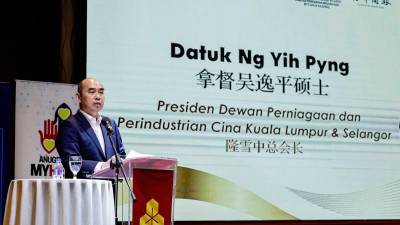KUALA LUMPUR: Experts have called for the economic partnership between South Korea, which became a dialogue partner of ASEAN in 1991, to evolve beyond traditional frameworks in light of fast-changing geopolitical and economic realities, extending to long-term security and stability as well.
Chairman of CARI ASEAN Research and Advocacy, Tan Sri Dr Munir Majid, said both ASEAN and Korea should “think out of the norm” as global alignments shift and economic interdependencies become more complex.
He said that Korea, among ASEAN dialogue partners, could no longer rely solely on traditional alliances, including the United States, amid rising uncertainty in global power dynamics.
To this end, he noted, new approaches must be explored and discussed, particularly during the ongoing 57th ASEAN Economic Ministers’ Meeting (AEM) and related meetings here.
“This is not business as usual. If ASEAN and Korea want to stay relevant, they must evolve together.
“Without addressing the bitter and rancorous dynamics between Korea, China and Japan, the broader ASEAN–Northeast Asia relationship may remain vulnerable to external volatility,” Munir warned in an interview with Bernama ahead of AEM.
Echoing such concerns, Dr Noor Nirwandy Mat Noordin, Security and Political analyst at Universiti Teknologi Mara’s (UiTM) Centre for Media and Information Warfare Studies, said Korea’s engagement with ASEAN must extend beyond economics to support inclusive development and long-term strategic stability.
“Korea must support ASEAN not just in trade, but in helping lift vulnerable groups through education, knowledge-sharing, and health security.
“This aligns with ASEAN’s non-segregation policy, ensuring no member is left behind,” he said.
Noor Nirwandy also cautioned that ASEAN’s partnerships must be built without compromising the region’s autonomy.
“Any expanded cooperation must respect ASEAN’s role as a central middle-power bloc. ASEAN frameworks must remain the core platforms for implementation,” he added.
The ASEAN Outlook on the Indo-Pacific (AOIP) was highlighted as a key area for synergy, where Korea could contribute to ASEAN-led mechanisms that promote peace, uphold the rule of law and build shared resilience.
Beyond geopolitics, both experts pointed to cybersecurity, digital trust, and information resilience as emerging pillars of cooperation.
Noor Nirwandy proposed collaborative efforts in media literacy, data protection, and cybersecurity training to enhance digital resilience across the region.
“This is where ASEAN–Korea cooperation can lead globally, not just follow. Shared digital resilience will define future economic security,” he said.
As ASEAN and Korea are expected to adopt a joint statement this week, both analysts urged the dialogue partners to move beyond scripted diplomacy and respond to new realities. – Bernama
